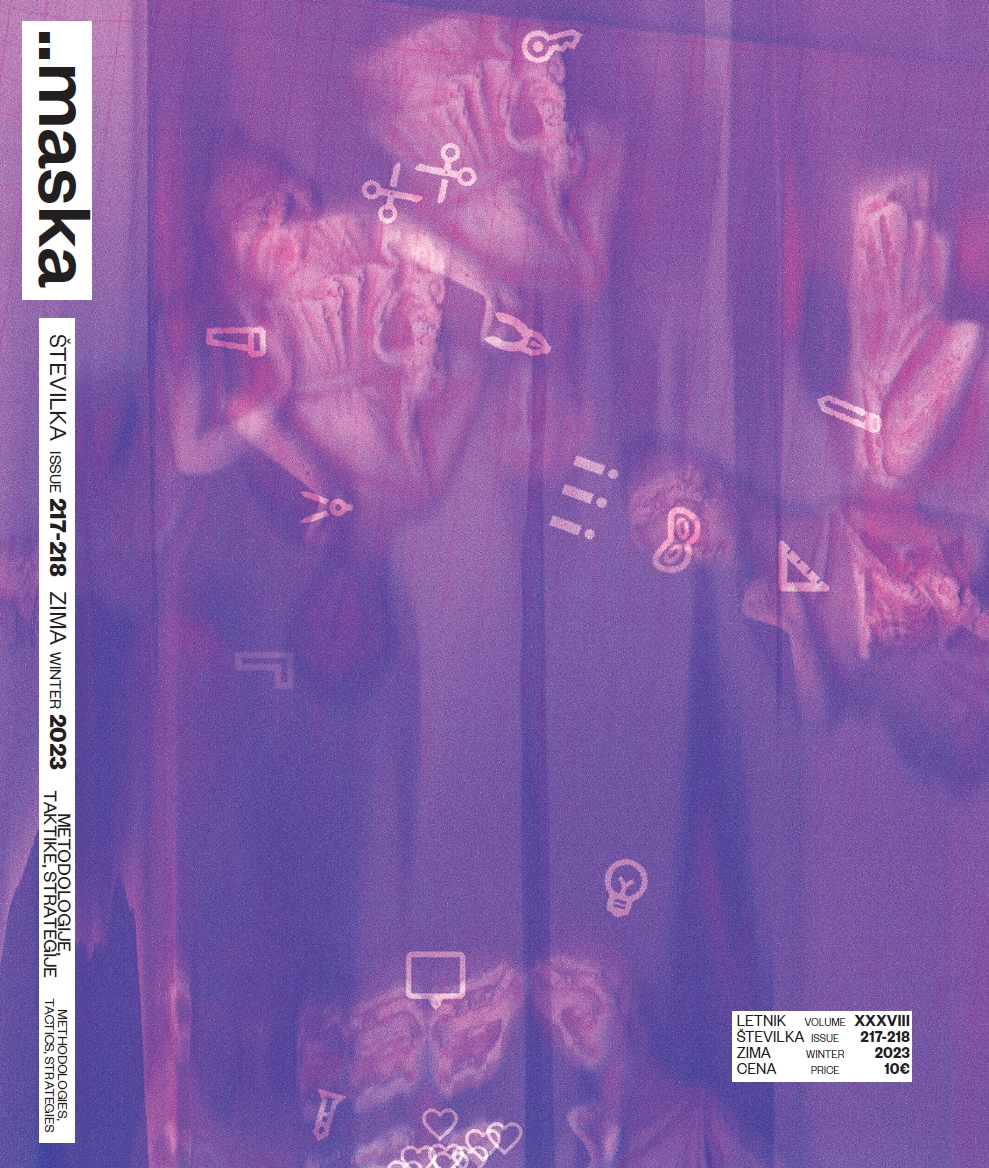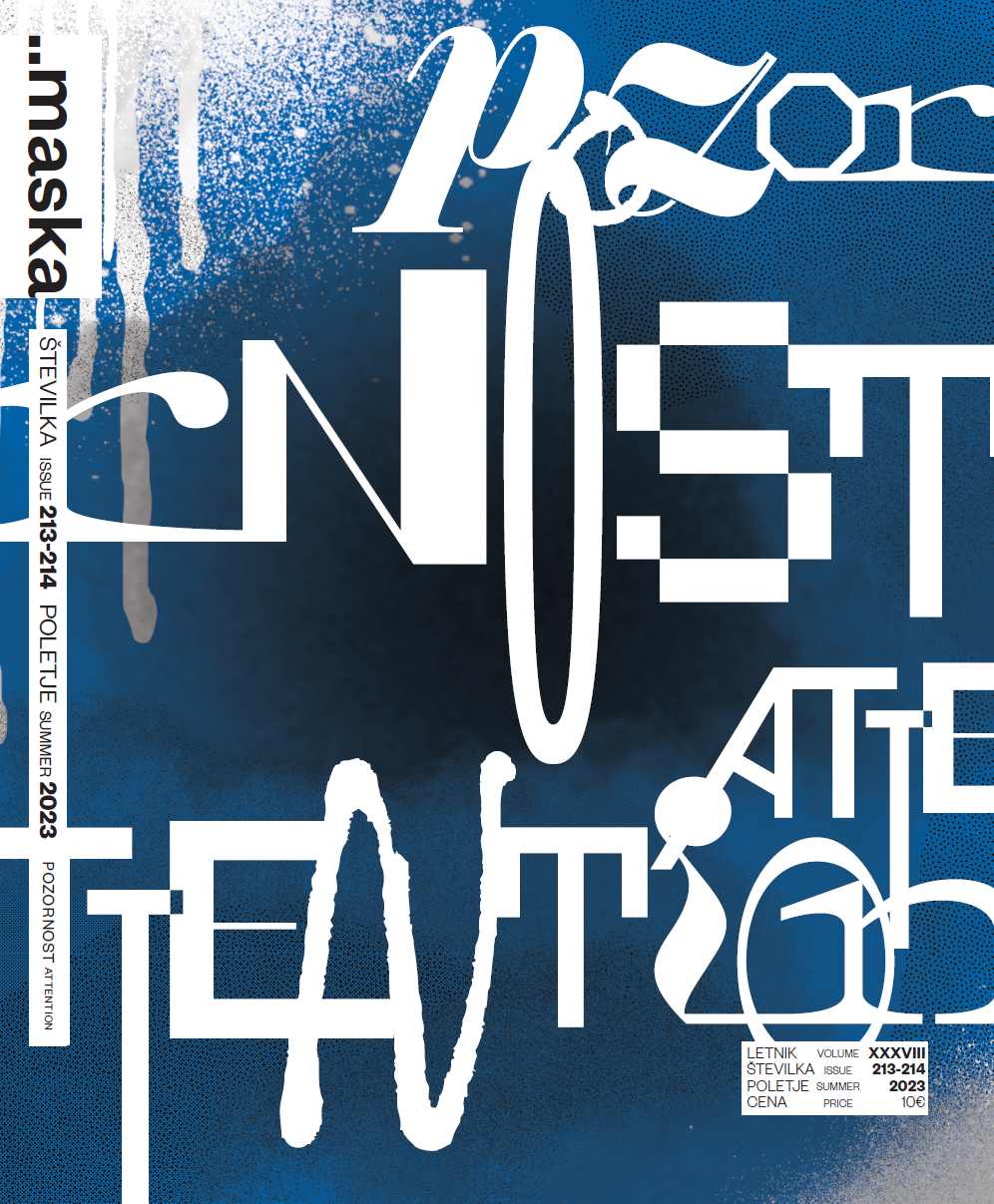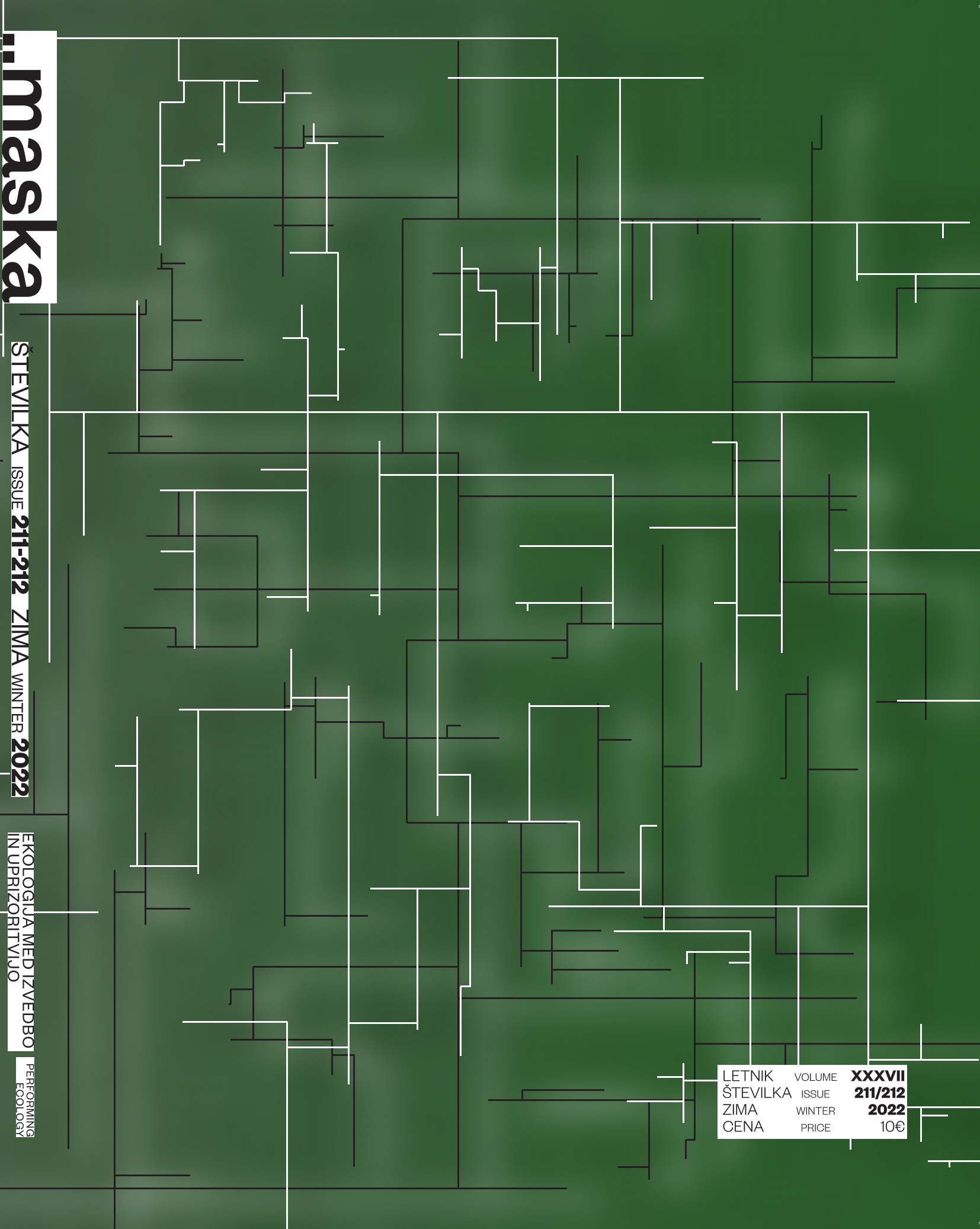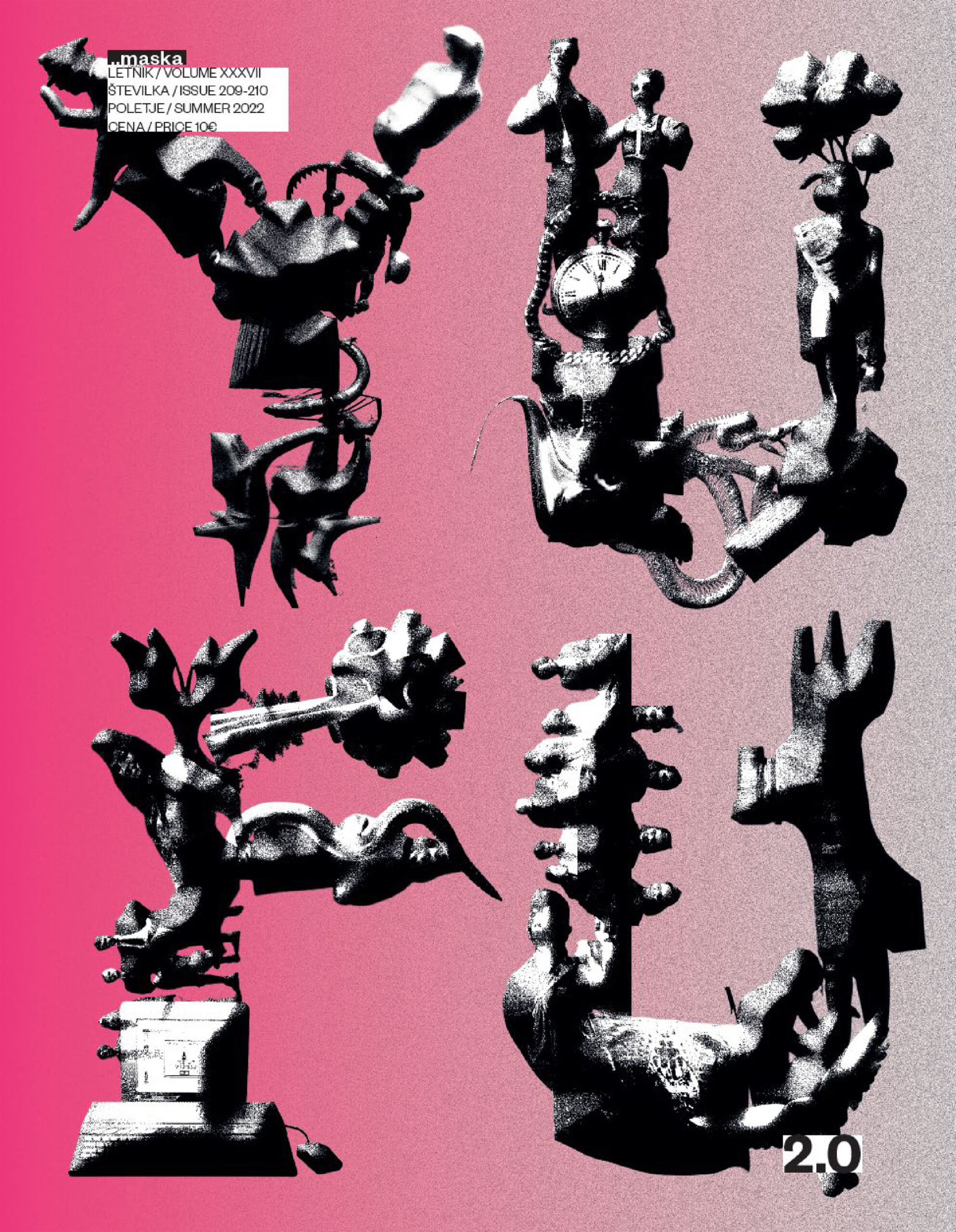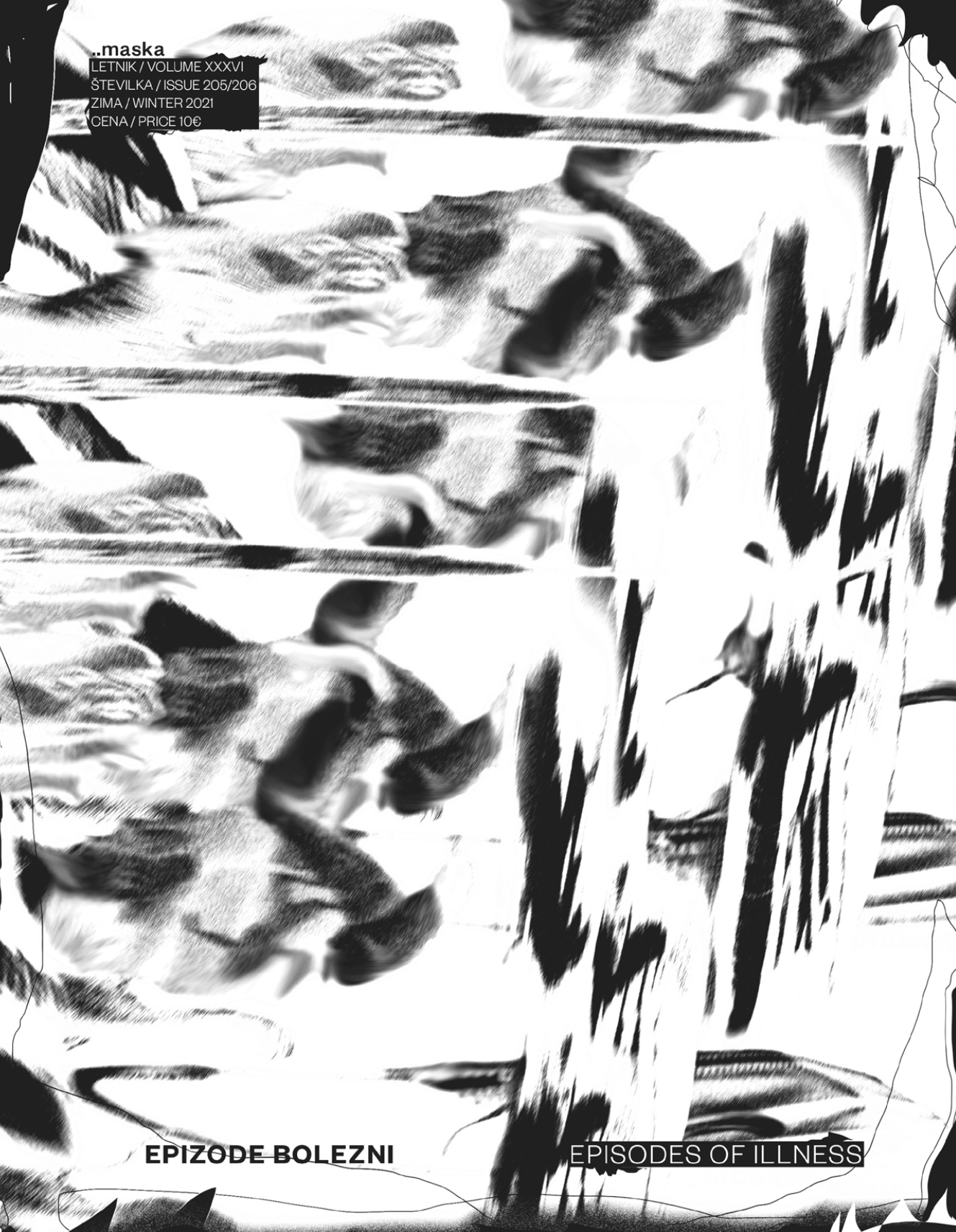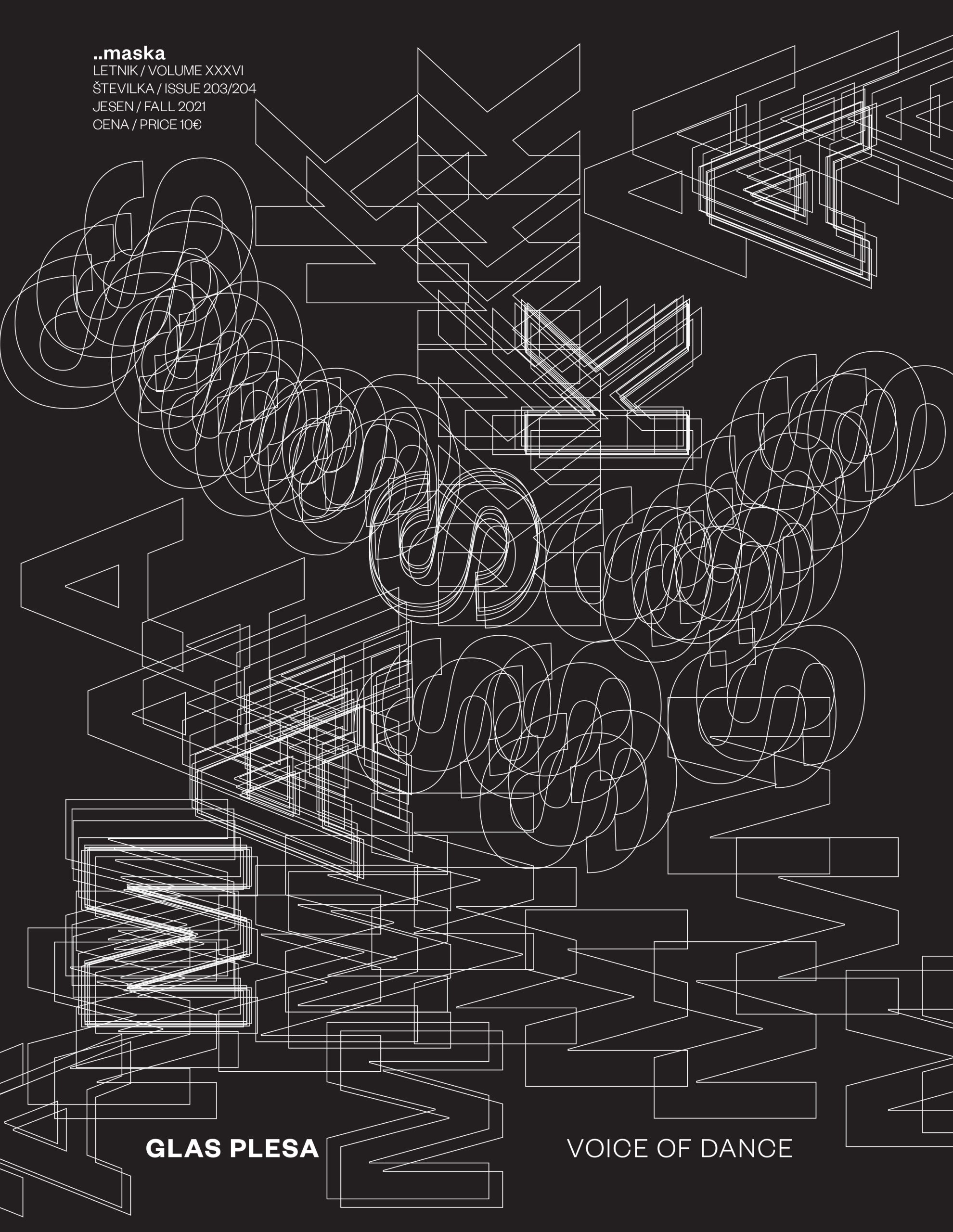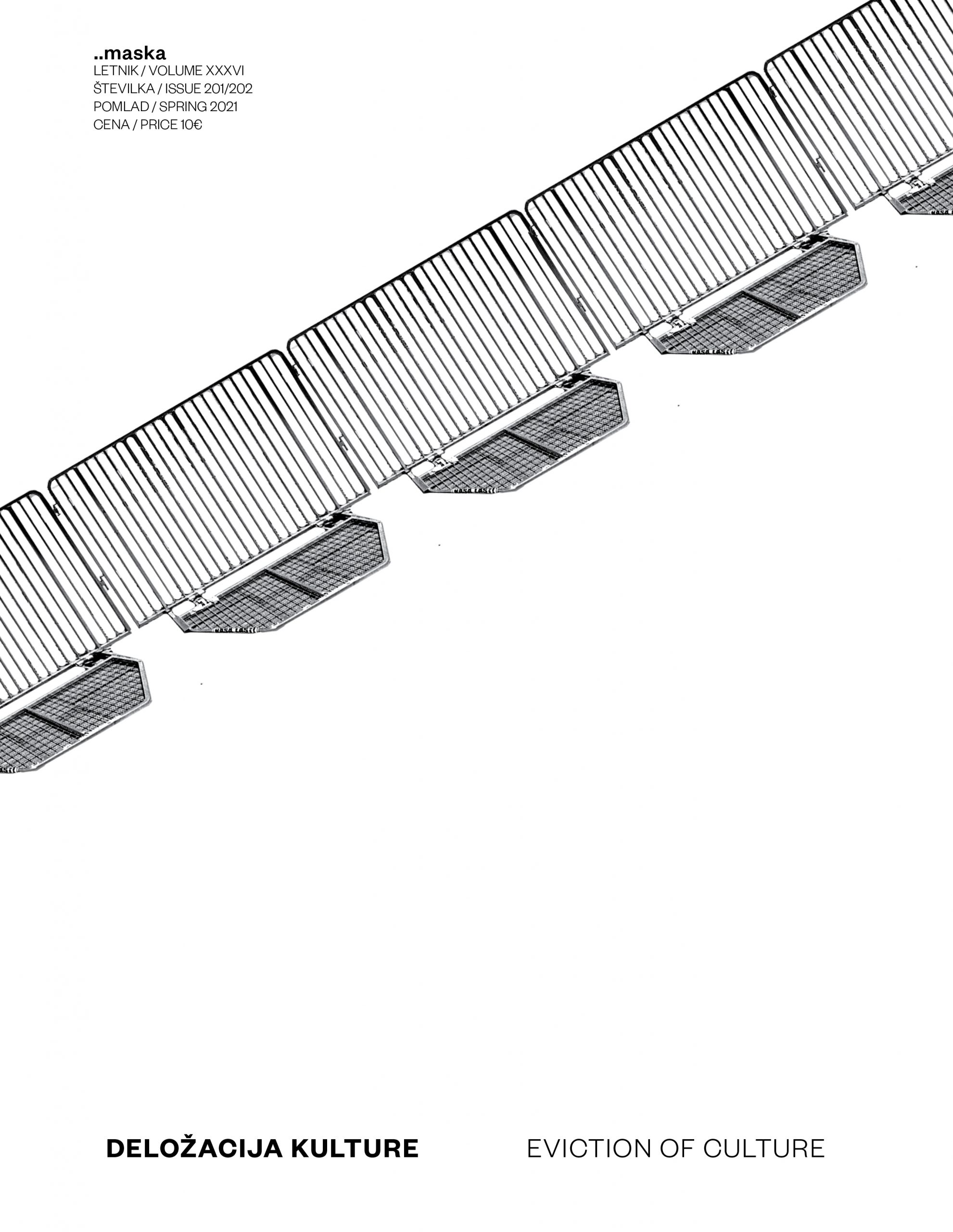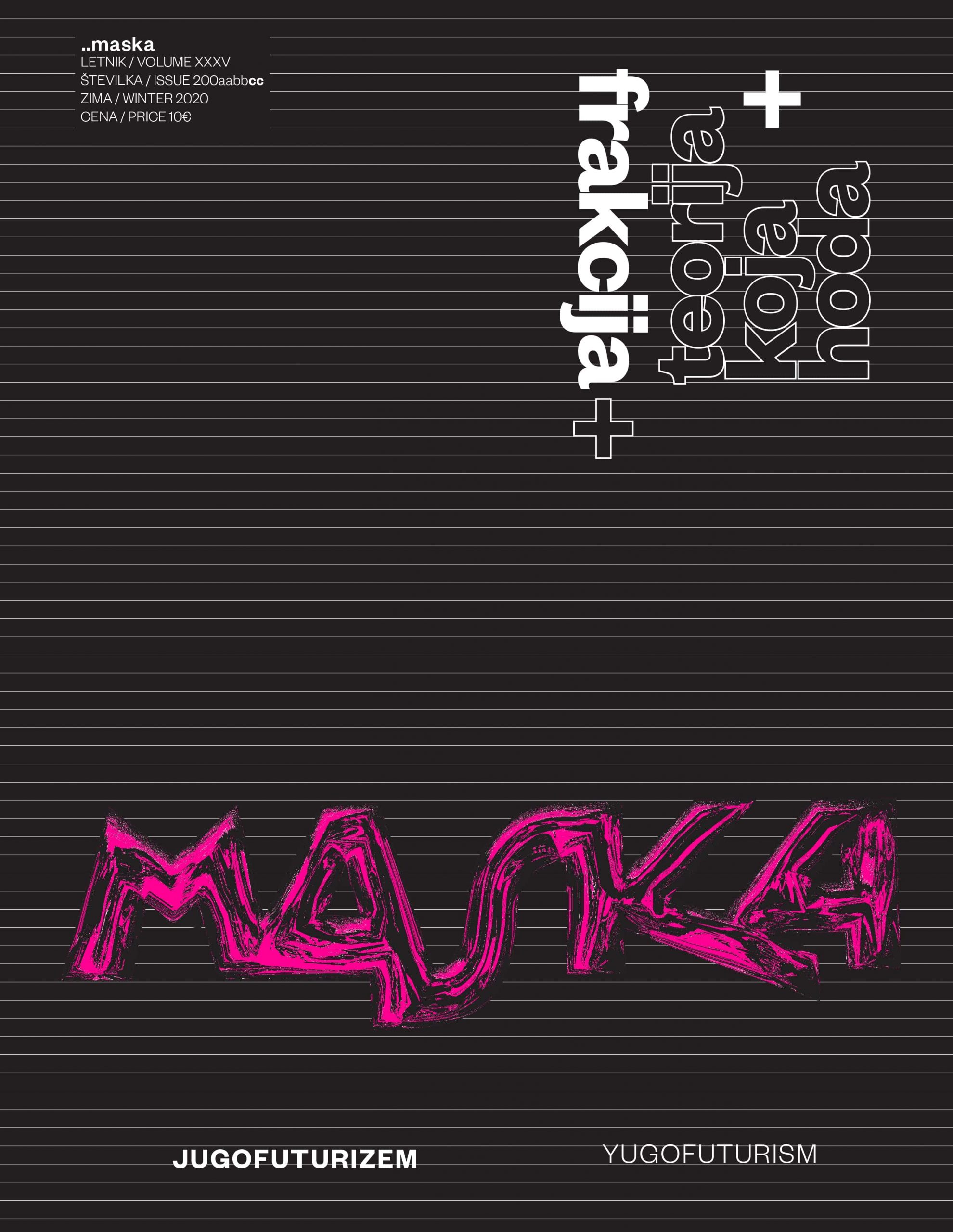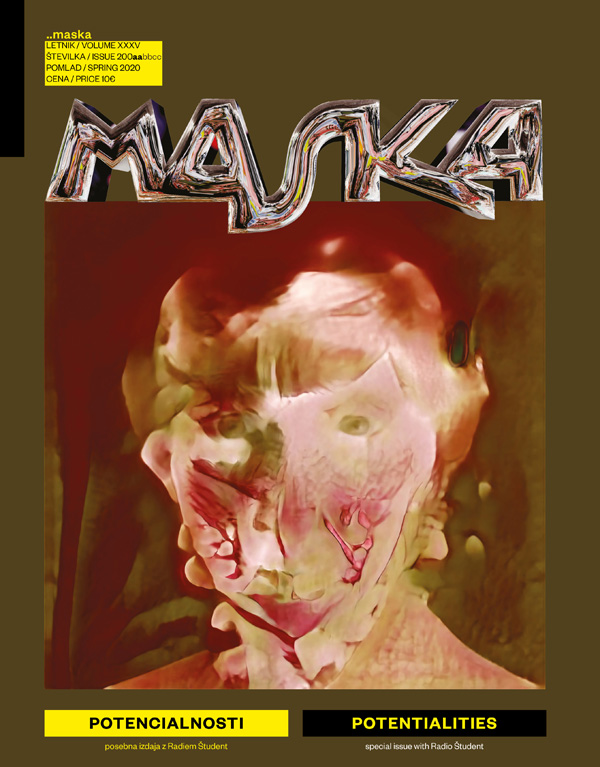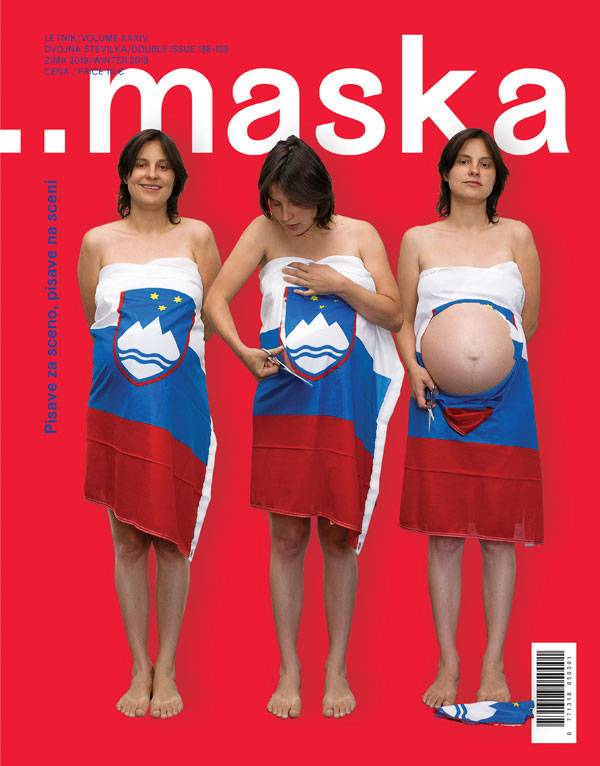Re/de-generation
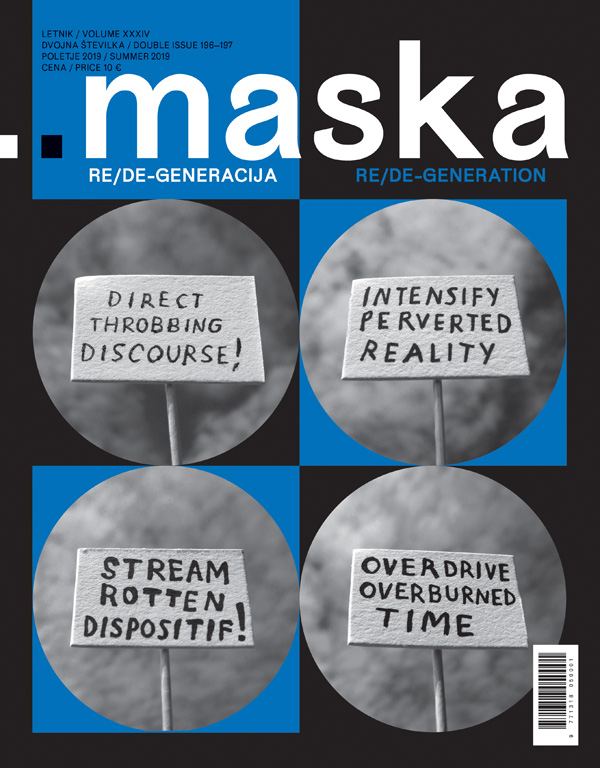
The decision that our first real issue of the editorial mandate will be thematically focused on generational issues is not only a consequence of the fact that (at least according to some counting and proposal criteria) we as editors are also part of the so-called young (female) critics. Neither do we want, as Maska has done in the past, to simply inaugurate the new, now 5th generation of directors, according to the count of this magazine, whom are currently autonomously entering the performative arena. This is what the newest issue of Adept (Magazine of Contemporary Theatre and Film Makers of AGRFT) has done instead of us. Not only have they covered the generations via a few of the strongest names in the field, they have also devoted an entire issue to interviews with 48 “young” professionals from various profiles within the field of performance. For this issue of Maska, the editorial team of Adept has contributed a self-interview.
With this issue of Maska, we were driven more than anything else by the desire to question the very concept of generations. It is a double-edged sword: on the one hand, it ensures the reproduction of the status quo and, in a narrower creative sense, the continuation of authorial poetics through the logic of master-apprentice, and is therefore, in fact, a conservative principle. And this despite the fact that etymologically it contains the word “genesis”, which anticipates development through the extension of the same, or at least the transfer and maintenance of the same – regeneration. This can be systematic and systemic – through established formal educational structures (in Maša Radi’s interview with Maja Delak we present one such fruitful and functional practice) or more sporadic and random. On the other hand, it is precisely through the concept of generations that ways of life that a group of people cannot or no longer wants to understand, because they differ from their own way of being and the values they form in the historically specific conditions of their own formation, break through the situation of conflict. It is precisely the subjective understanding of the point of this break that makes the boundary between generations shift.
Year XXXIV, no. 196–197 / summer 2019
Editors in Chief: Pia Brezavšček in Alja Lobnik
ISSN 1318-0509
The Generation Between Regeneration and Degeneration
The term Generation does not have a closed definition – it is not always clear whether it is defined by age, geographical location, common formation, similar conditions in which groups of people enter certain turning points in their lives, or a combination of all these. Which group of people is covered by a particular generation is certainly also conditioned by the position of those who make statements about it, and this often says even more about the position of the statement itself than about the defined group of people. The reproduction of civilisation (as well as of various narrower groups and scenes) thus proceeds along the lines of such small modifications of the basic “gene”. Muanis Sinanovic calls this in his article the “family disposition”. This linear understanding of self-multiplication is part of the problem that prevents the possibility of real change – because by definition it is seen as degenerative. As Katja Čičigoj writes through a feminist and environmental prism, it is perhaps the imposition of the continuity of our own genome that prevents a real paradigm shift in how we understand and transform the future.
When we think about the future of the field and the scene, it is inevitable to think about the place (or rather the path) of the most progressive part of the “generation” before us, because its positioning and complexity is a kind of landmark for us, helping us to understand our own position and to unpack the symptoms of the international and local context of the whole scene. That is why in this issue, through some more or less representative statements, we take stock of the so-called international artistic and theoretical “diaspora”, which originated in the former Yugoslav region, but for one reason or another was forced to emigrate to the West. Let this be the beginning of our exploration of the significance of this extremely strong theoretical and artistic internationalised “community”, to which we would like to give a special place in the next period through the activities of Maska – also in the jubilee year of 2020, when the journal, so significantly marked by this “emigrant generation”, will celebrate its 100th anniversary and its 200th issue will be published.
For us, the fact that the problem of generations has come to the fore in a narrower sense, in the so-called (independent) performance scene, is undoubtedly also due to the systemic anomalies that have pushed actors of different generations into very unfair working conditions, which are becoming more and more evident and have material consequences that are reflected in the artistic production itself. In the editorial office, we have detected the following situation from the obviousness of the situation on the local scene: a certain strong group of producers has emerged, because historically, some NGOs that emerged in the 1990s, by the time the Ministry of Culture and the Municipality of Ljubljana first introduced multiannual programme calls, had strengthened and, of course, maintained their precedent advantage.This is why we have been able to see the emergence of a strong group of producers, because historically some of the NGOs that emerged in the 1990s, by the time the Ministry of Culture and the Municipality of Ljubljana first introduced multiannual programme calls. Nevertheless, these older producers never really achieve stability, which would have made sense at some point – as it would have ensured their continuity, while at the same time stopping them from competing unfairly with the younger ones. But cultural policies are not responsive to the live situation and real needs – they are not systematically analysed and solutions are not integrated into their creation and application, so today this systemic problem has led to stagnation and huge generational gaps. There is no doubt that different generations have therefore entered the scene under different conditions, with the “middle” generation perhaps the most difficult at the moment, as it cannot compete with older producers, nor is it given the special resources and conditions reserved for the “young”. Even if there are some sufficiently strong NGOs in the area, which were set up after 2000, the difference between them and the older producers is mainly that the latter have secured certain infrastructural capacities with the help of the municipalities. One of the younger producers, Maribor-based Nagib, which is a somewhat specific case due to its dislocation from the capital both in terms of content and infrastructure, is analysed in this issue by Kaja Kraner.
A further systemic anomaly is that the support of sponsors is overwhelmingly funnelled and accumulated into production – e.g. infrastructure management, logistics, fundraising – while the content itself remains poorly supported and precarious, despite some rare attempts to support it directly (e.g. working grants, call for artists’ opuses). In general, the call for proposals gives disproportionate weight to the credentials of producers rather than artists, which makes it difficult for “young” or “new” artists to enter. This is not the fault of a particular generation – which in other circumstances has managed to set up production houses, private institutions consolidated mainly around one artist – but it is a systemic problem. The first steps that could loosen up these relationships are certainly possible in the context of detecting the situation and actively and vividly shaping cultural policies according to the needs and organic development of the scene.
Without pointing fingers at the culprit, the current generational picture is striking and we felt it important to underline it. In this issue we wanted to outline it in a new section, Crumbs from the Scene, which will regularly populate the magazine with various materials from live artistic production. This time, we present a fragment of Dino Pesut’s play trilogy Stadion Olympia, which describes the existential situation of a young cultural worker in a literary and autopoetic way. Today, young precarious and self-employed people entering the cultural sector are not just wage labourers who need to be harnessed to the producer-capitalist means of production in order to generate new (symbolic) capital from their living labour. The truth is that, as self-employed, they do not even have the basic collectively chosen rights of workers, since the formal relationship between employers and employees has been abolished – in fact, it continues to exist and is even exacerbated, the employer being relieved of all commitment and responsibility. It could even be argued that young people have become means of production, semiotic machines whose potentials must be sapped as much as possible and the results that their bodies-minds make possible appropriated. The young-machines have to keep up the pace of accelerated work, but if they deteriorate or are no longer productive, if their potential is not extracted fast enough and does not produce enough added value for the positioned producer-capitalists, they are simply replaced by younger “models”, and the production process goes on, without much harm to them, but with a depressingly destructive force on the young, who are back to square one. Their stamina, agility, resilience and productivity are regularly evaluated. For an extremely long time – too long – they have to prove themselves by working (half) for free in order to prove themselves worthy of being ‘appropriated’ at all – because they do not dispose of their capacities themselves, because they are worth nothing if they are not attached to some (symbolic) capital. Of course, not everyone, especially not someone without a financial background, can afford such a long idle run, because after all, one also has to survive – which is why permeability in the cultural field has also become a class privilege.
This and future issues of Maska will be rounded off with the Independent section, a collaboration with the newly launched internet platform www.neodvisni.art, which is also edited by the undersigned. The platform has set itself the task of recording and reflecting on the field of contemporary performing arts – with contributions that follow each other at one-week intervals. In Maska’s column Neodvisni (Independent), a selection of material from the semi-annual production of reflections on Independent will be published. This one is also, at least indirectly, thematic: Robert Bobnić’s contribution introduces the generationally marked theme of the theoretically topical treatment of contemporary intermedia art from a technological perspective. One of the ways of defining a generation is its degree of intertwining with technology. We have also included a contribution by Maša Radi, who, despite her youth, is actively regenerating her affinity for contemporary dance in a devastated critical landscape. Last but not least, we have also included Zala Dobovšek’s sensitive article on Mark Breclo, through which we want to bring to the magazine an aspect of that generation that has almost been written off, but which perseveres at its own pace and with its own wit, and which represents for us, through the forgotten values it promotes, a precious and rare reminder.
Here’s to many reading pleasures!
Pia Brezavšček and Alja Lobnik
Contents
PARRHESIA
Muanis Sinanović: What we talk about when we talk about generations
REFLECTOR
Katja Čičigoj: Regenerating the future without reproducing it: Donna Haraways’s Nature-cultural, Multi-species kinship
Kaja Kraner: A Move Towards Curating in The Field of Contemporary Visual and Performing Arts; The Nagib Platform
INTERVISION
The editorial board of Adept Magazine (Jaka Smerkolj Simoneti, Tery Žeželj, Jernej Potočan, Filip Mramor, Ivana Percan Kodarin): We Are Not Really Connected as a Generation
Pia Brezavšček: Diaspora of the Scene
Maša Radi Buh: Young Choreographers Facing Unfavourable Conditions, Interview with choreographer and teacher Maja Delak
CRUMBS FROM THE SCENE
Dino Pešut: STADION OLYMPIA Fragment of the 3rd Part of the Trilogy
INDEPENDENT
Robert Bobnič: Sonic Transmissions
Maša Radi Buh: To be Together Alone
Zala Dobovšek: The Marko Brecelj Golden Series
